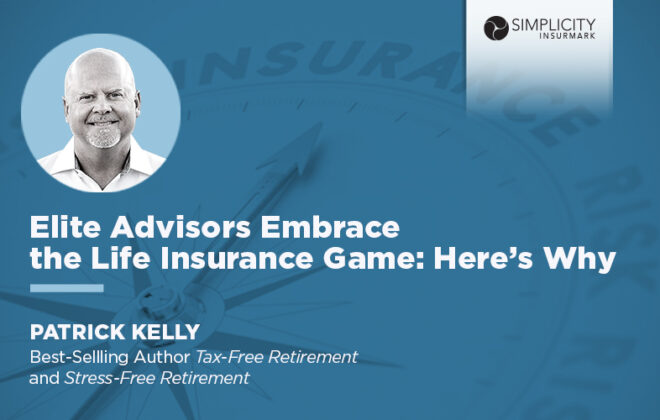Involving Family in Financial Planning Is Good for Clients and for Business
“Retirement Is a family affair.” Those words of wisdom were shared by Steve Gresham, senior education advisor for the Alliance for Lifetime Income (ALI), on a recent episode of The Breakthrough Advisor Podcast. Retirement affects everyone in the family (primarily spouses and children), yet most financial advisors only engage with one spouse, which often results in opportunities lost with surviving spouses and adult children.
Advisors who keep rolling with a single-spouse minded focus risk losing a staggering amount of business from surviving spouses (as we discussed in our previous blog, Widows Drop Advisors Like Flies) not to mention the transfer of generational wealth dollars adult children will take to advisors they know and trust more than their parents’ advisors.
According to the New York Times in May of 2023, “Of the $84 trillion projected to be passed down from older Americans to millennial and Gen X heirs through 2045, $16 trillion will be transferred within the next decade.”
It’s easy to focus client engagements on one spouse only but that’s not how top advisors become top advisors. They know they need to understand the needs, wants, fears and risk tolerances of both spouses, while also navigating the influences and desires of any adult children in the mix.
As Gresham, his colleague Michael Harris and InsurMark Virtual CMO Jack Martin discussed on the podcast, advisors need to be proactive about engaging both spouses and children. This not only takes a shift in mindset but a shift in the advisor’s strategic approach to his or her business.
Engaging the unengaged spouse is a must
Let’s start with the unengaged spouse, who more often than not is the wife, especially when the couple is affluent. It’s important to bring that unengaged spouse into the conversation as soon as possible. A couple’s financial plan shouldn’t be based on one spouse’s desires alone. The earlier you start engaging both spouses, the more likely you will be to build a strong relationship with both of them.
Including both spouses in the conversation also helps ensure any plans for their financial future address both spouse’s needs, wants and wishes as best as possible. The more you talk, the more you’ll also learn about their tolerance for risk and what motivates them. Even if you start the engagement with one spouse, it’s important to bring the unengaged spouse into the fold whenever possible.
According to Gresham, “There is no shortcut to finding out who they are without talking to them. And you want to be checking all the time, because this is how you’re going to determine the investing personality of the person who is more unengaged. You’re going to get a better feel for what they’re thinking about. You do not want that person to be silently making an opinion of you because you haven’t given them a chance.”
Advisors who understand their clients’ investor personalities serve them best
What do we mean by investor personalities you ask? If you missed the podcast with Gresham and Harris, or the aforementioned Widows blog, you definitely need to check out ALI’s Investor Personality Quiz for clients, along with their Client Conversation Profiles Guide.
Based on intensive research ALI conducted with consumers, the quiz helps pin down the client’s investor personality. The guide provides advisors with insight about the different investor profiles, along with pertinent questions to get conversations rolling, bolster engagement and build trust. The quiz (which only takes a few minutes) is a great way to get the unengaged spouse involved, while helping them learn more about themselves.
Speaking of personalities, advisors should also keep in mind that a client’s investing personality can change when their circumstances do. For example, couples who have been married for decades may be on the same page regarding their financial plans as they enter their retirement years. However, when a spouse dies, fears and uncertainty can crop up for the surviving spouse that changes how they view their future.
Says Harris, “If I were to pass, I think my wife’s investing personality would change a little bit.
Other things come into play then. Now you’re all by yourself. There’s a little more risk, a little more worry, a little more concern. Maybe it’s about the kids that she didn’t really bring into the mix as much because we were kind of homogeneous at that point. You know, being a couple for that long, you get to think alike.
“One drops out of the picture and things change. So as an advisor, you may know your clients, and if you’ve got a married couple, you may know them pretty well. But don’t think that everything’s going to continue down the same path because we change under certain life events, especially big events. Your personality and your thoughts and your emotions change and adjust. and we’ve got to stay on top of that.”
Advisors need to be cognizant of this and proactive about reaching out to offer support when one spouse is ailing and/or after a spouse has passed. When handled sensitively, this can go a long way toward bringing peace of mind to the spouse who is left behind. It also enables advisors to put the client in a position to adjust financial plans as needed, so they align with the thoughts, emotions and new investor personality that has emerged.
Advisors need to be mindful of adult children, for more reasons than one
The most obvious reason for advisors to engage with the adult children of their clients is to be the trusted resource the children need when wealth transfers from one generation to the next. More advisors are encouraging clients to schedule family meetings about financial planning, so they can help parents educate children about what’s going to happen next, address questions or concerns they may have and build trust.
According to Gresham, “Involving the adult children, so they have a chance to see how you are treating their parents, that is actually the key to intergenerational wealth transfer. That’s something so many organizations talk about all the time, but very few actually pull off.”
Advisors also shouldn’t underestimate the influence adult children have on their parents’ financial decisions when the first parent passes away. Not only should they be talking with the surviving spouse, they should be having conversations with the children as well.
As Gresham explains, “The surviving spouse issue is really, really interesting. Over the years, one of the things we’ve noticed is that it’s not so much the surviving spouse that pulls the trigger. The surviving spouse is actually following the recommendations of adult children they have, who possibly have their own advisors. So, there’s a conflict in there that most advisors are not aware of. They think they should be talking to the unengaged spouse. Really, they should be going an awful lot deeper because their future may be in other people’s hands.”
Want to integrate family financial planning into your strategic plans?
The folks at the Alliance for a Lifetime Income offer a ton of research and resources to help advisors educate their clients about the importance of having enough protected income in retirement, along with insight about financial planning based on investor personalities discussed above and more.
InsurMark advisors can also reach out to their Advisor Development Consultant to map out a plan to integrate ALI’s investor personality tools and other resources to help ensure the whole family is engaged in financial planning.
Are you a financial professional who wants to find out how InsurMark can help you simplify, manage and grow your business? To learn more about the resources, investment products, marketing technology and other services InsurMark offers, contact us at (800) 752-0207 or connect with us online.
As an ADO – Advisor Development Organization™, InsurMark provides solutions to meet the ever-evolving needs of financial professionals with a mission to protect and enhance the financial security of every home in America.




